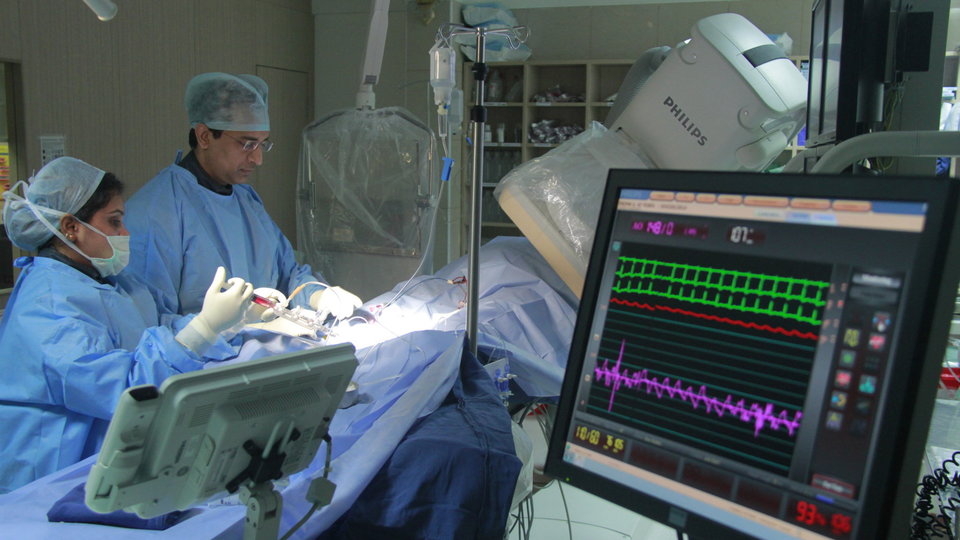Cardiac Care Technology is a specialized area of healthcare that focuses on the diagnosis, treatment, and management of heart conditions. This field involves the use of advanced medical technologies and procedures to assist cardiologists and other healthcare professionals in providing comprehensive care to patients with cardiovascular diseases.
Overview of Cardiac Care Technology
Cardiac Care Technology encompasses various diagnostic and therapeutic procedures that help in the assessment and treatment of heart-related conditions. It involves the use of specialized equipment, techniques, and knowledge to monitor and improve heart function.
Roles and Responsibilities of Cardiac Care Technologists
-
Performing Diagnostic Tests:
- Electrocardiogram (ECG/EKG): Technologists perform ECGs, which record the electrical activity of the heart. This test helps in detecting heart rhythm abnormalities, ischemia, and other cardiac conditions.
- Echocardiography: Using ultrasound technology, technologists produce images of the heart (echocardiograms) to evaluate heart structure and function.
- Stress Testing: Technologists conduct stress tests, where patients are monitored while exercising or receiving medication that stresses the heart. This helps in assessing how well the heart handles physical activity.
- Holter Monitoring: Continuous monitoring of the heart’s electrical activity over 24-48 hours using a portable device.
-
Assisting in Cardiac Procedures:
- Cardiac Catheterization: Technologists assist in invasive procedures where a catheter is inserted into the heart through blood vessels to diagnose and treat cardiovascular diseases. They monitor the patient’s vital signs and ensure the proper functioning of equipment.
- Angiography: During an angiography, technologists help in the imaging of blood vessels using contrast material to identify blockages or abnormalities.
- Pacemaker Implantation: Assisting in the implantation and monitoring of pacemakers, which regulate heartbeats in patients with arrhythmias.
-
Monitoring Patients:
- Post-procedural Care: Monitoring patients’ vital signs and heart function after cardiac procedures to ensure recovery and stability.
- Critical Care Monitoring: In intensive care settings, technologists monitor critically ill patients using advanced cardiac monitoring systems.
-
Data Analysis and Reporting:
- Analyzing test results and providing detailed reports to cardiologists for diagnosis and treatment planning.
- Using specialized software to interpret data from various cardiac tests and imaging studies.
-
Equipment Management:
- Operating and maintaining sophisticated cardiac care equipment, including ECG machines, echocardiography machines, Holter monitors, and catheterization lab instruments.
- Ensuring that all equipment is calibrated and functioning correctly to produce accurate results.
Educational Pathway
-
Educational Requirements:
- Diploma/Certificate Programs: Short-term programs that provide foundational knowledge and hands-on training in cardiac care technology.
- Associate’s Degree in Cardiovascular Technology: A two-year program that covers comprehensive training in diagnostic and therapeutic procedures, including clinical rotations.
- Bachelor’s Degree in Cardiovascular Technology or Allied Health: A four-year program that offers advanced education and training, including specialized areas like invasive cardiology, non-invasive cardiology, and vascular technology.
-
Certification and Licensing:
- Certification: Obtaining certification from recognized organizations like Cardiovascular Credentialing International (CCI) or the American Registry of Diagnostic Medical Sonographers (ARDMS) is often required by employers. Certifications like Registered Cardiovascular Invasive Specialist (RCIS) or Registered Diagnostic Cardiac Sonographer (RDCS) are common.
- Licensing: Some states may require licensing for cardiac care technologists, depending on local regulations.
-
Continuing Education:
- Keeping up with advancements in cardiac care technology and maintaining certifications often requires ongoing education and training.
Skills and Competencies
- Technical Skills: Proficiency in operating and troubleshooting cardiac care equipment, understanding complex medical software, and performing diagnostic tests.
- Attention to Detail: Ensuring accurate results and monitoring patients carefully, especially during high-risk procedures.
- Communication Skills: Effectively communicating with patients, families, and healthcare teams to provide clear instructions and convey test results.
- Critical Thinking: Ability to make quick decisions in emergency situations and interpret test results accurately.
- Compassion and Empathy: Providing comfort and support to patients who may be anxious about procedures or diagnoses.
Career Opportunities and Work Environment
- Work Settings: Cardiac care technologists typically work in hospitals, specialized cardiac care centers, outpatient clinics, diagnostic labs, and sometimes in mobile units.
- Specializations: Technologists may specialize in areas like:
- Invasive Cardiology: Focused on procedures like cardiac catheterization and angioplasty.
- Non-Invasive Cardiology: Involves tests like echocardiography and stress testing.
- Vascular Technology: Concentrates on the diagnosis and treatment of vascular diseases affecting blood vessels.
- Career Growth: With experience and further education, technologists can advance to supervisory or administrative roles, become educators, or specialize in advanced procedures.
Challenges and Rewards
-
Challenges:
- The high-pressure environment of working in cardiac care, especially during emergencies.
- The need for precision and accuracy in all procedures.
- Staying updated with rapidly evolving technologies and procedures.
-
Rewards:
- Playing a vital role in saving lives and improving patient outcomes.
- The opportunity to work with cutting-edge technology in a dynamic healthcare environment.
- Job stability and opportunities for career advancement in a growing field.
Future of Cardiac Care Technology
As cardiovascular diseases remain one of the leading causes of mortality globally, the demand for skilled cardiac care technologists is expected to grow. Technological advancements, such as the development of minimally invasive procedures, wearable cardiac monitors, and artificial intelligence in diagnostics, will continue to shape the future of this field, making it an exciting and evolving career choice.

